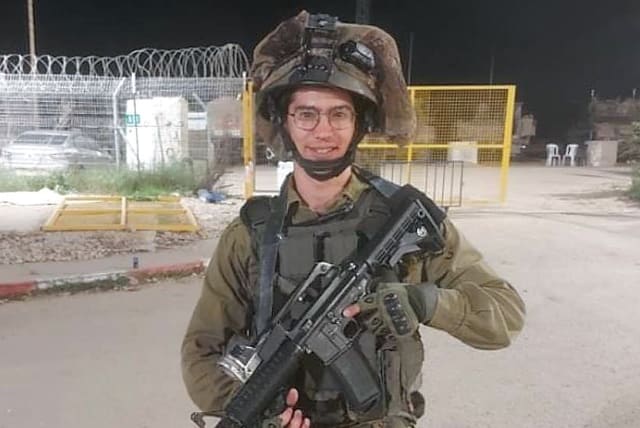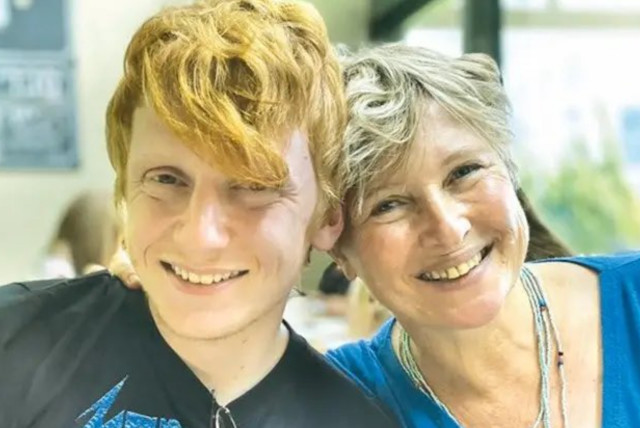Start-Up Nation to Restart Nation: Israeli gov't needs to reconnect - opinion

When the government is not as decisive as the army and no decisions about the day after are being made, a dangerous vacuum is created with no alternative, which Hamas is exploiting.
Since the “War of No Choice” broke out on October 7, Israelis have discovered a generation of heroes on the battlefield and back home. To name but a few: Rabbi Elkana Vizel, 35, a married father of four who fell in Gaza after leaving an ethical will urging us to rejoice rather than mourn (“We have so much to be excited and happy about – we are the generation of Jewish redemption!”); and Idan Amedi, the singer and actor [Sagi Tzur in Fauda] who has bounced back after being seriously wounded in Gaza, stating: “My body was injured but my soul is stronger than ever.” Another hero was Iris Haim, who forgave and embraced the soldiers who mistakenly shot and killed her captured son, Yotam, in Gaza.
However, there is a huge gap between the government and the people. In a survey recently published by the Israel Democracy Institute, 73% of those surveyed expressed a lack of trust in government policies. The IDF too can no longer stay ”slim and smart,” relying too much on hi-tech as it did pre-October 7. The Ministry of Defense needs NIS 220 billion additional funding to cover a substantial increase in regular soldiers and security expenses, making cuts in sectoral spending crucial.
The gaps between the government and the people
A shocking statistic revels that from 1948 to October 6, 2023, some 9,000 terror victim claims have been filed with Social Security, whereas in only three months since October 7 the number increased tenfold to 90,000. Since the beginning of the war, the number of people treated in rehabilitation centers rose to 60,000, mostly for post-trauma. Half of the war wounds are orthopedic loss of limbs which require a lengthy rehabilitation period. One amazing story of solidarity is that of Dvir Fisher.
He had to go through hoops to return to Israel from Nepal to fight in the war as a paramedic. He was severely wounded, but after slowly recovering he started a popular podcast in Hebrew and English recounting the heroic stories of his fellow wounded soldiers called The Heroes of Israel 24 as part of their healing process. It gives a voice to so many stories of outstanding courage. Our society has to offer them all the benefits available. After four months of war, the numbers of visitors of the wounded are dwindling. Individuals and companies need to start adopting the wounded and show gratitude for their immense sacrifice. To add insult to injury, many reservists run the risk of financial ruin after fighting for over three months. One such reservist, who like many others is facing being fired, told me that he had no energy left to fight another war against his employer. He was summoned at his law firm on the 31st day after he was back at work for an employment hearing. “Isn’t it sad,” he said, “that people risk their lives while risking their livelihood at the same time? I lost friends in Gaza. Why should I lose my work as well?”
Urgent legislation is required to prolong the 30-day period protecting reservists from being fired. It is payback time for their tremendous sacrifice.
To his credit, Labor Minister Yoav Ben-Tzur is working hard to extend the period to 90 days. The forum of the reservists’ wives is also requesting to prolong their protective period to 60 days.
The ultimate disconnect between the burning issues of the present and the government was a conference on resettling Gaza, which took place in Jerusalem in January. Numerous government ministers and members of Knesset attended and even danced while there were soldiers fighting in Gaza, hostages held by Hamas, and over 200,000 evacuees from the north and south of Israel. Many evacuees lost not only their homes and their communities but also their trust in the authorities.
For months, Chief of Staff Lt.-Gen. Herzi Halevi has been asking the government for its strategy for the day after the war. The evacuees need to have some clarity about a homecoming date, and the North needs the same Tekuma (Revival) administration as the South. Every day in which tactical victories in this war are not being translated to a clear strategy, the danger increases that former residents of the North and South will not return to their homes. The IDF is a national treasure, unlike any other army in the world, and serves as the ultimate melting pot of Israeli society. When the government is not as decisive as the army and no decisions about the day after are being made, a dangerous vacuum is created with no alternative, which Hamas is exploiting.
Hamas never asked whether we are of the Right or Left, religious or secular, young or old when they massacred Jews. Government opponents are risking their lives fighting side by side with government supporters in this existential war. Our nation may be diversified but should never be divided. As Haim Yellin of Kibbutz Be’eri so poignantly said, “Honor the fallen by being united.”
I lost my uncle in Israel’s War of Independence and my mother in a terrorist act perpetrated by Hamas. May we all be worthy of the sacrifice of our fallen.■
Shoshana Tita is a journalist, scholar, and international teacher based in the US, Spain, and Israel.
Jerusalem Post Store
`; document.getElementById("linkPremium").innerHTML = cont; var divWithLink = document.getElementById("premium-link"); if (divWithLink !== null && divWithLink !== 'undefined') { divWithLink.style.border = "solid 1px #cb0f3e"; divWithLink.style.textAlign = "center"; divWithLink.style.marginBottom = "15px"; divWithLink.style.marginTop = "15px"; divWithLink.style.width = "100%"; divWithLink.style.backgroundColor = "#122952"; divWithLink.style.color = "#ffffff"; divWithLink.style.lineHeight = "1.5"; } } (function (v, i) { });

